Ever wondered about the history of your Irish surname or from where your last name originated? You can find your name's meaning or Irish last name origin in this comprehensive list.
Irish surnames are one of the most intriguing parts of our culture and finding your last name's origin can tell you a lot about the Irish people you are descended from.
With the help of IrishCentral, you can now take your Irish last name or the surnames you know you are descended from and find these last names' origins in one easy guide.
The following is Part I (letters A - G) of our comprehensive list of the 300 most common Irish surnames and their meanings.
- Find out the meaning behind your Irish surname - Part II (H-M)
- Find out the meaning behind your Irish surname - Part III (N-W)
The meaning behind your Irish name, Part I: Letters A - G
Ahern, O'Ahern, Hearne
These Irish last names have their origins in Co. Clare, where the family held a seat as a Dalcassian sept from before the year 1000. With the disruptions of the Strongbow invasion of 1172, they migrated southward to Cork and Waterford. In Waterford, the name is predominantly known as Hearn/Hearne.
(Mac) Auliffe
The Irish last name MacAuliffe is particular to Co. Cork and is scarcely found outside Munster. The MacAuliffes are a branch of the MacCarthys.
MacAleese - MacGiolla
This Irish surname is of a prominent Derry sept. Its origin can be traced back to Mac Giolla Íosa, meaning "son of the devotee of Jesus". There are many variants of the name such as MacIliese, MacLeese, MacLice, MacLise, etc. The best known by this spelling, the painter Daniel MacLise, was from a family of the Scottish highlands, known as MacLeish, which settled in Cork.
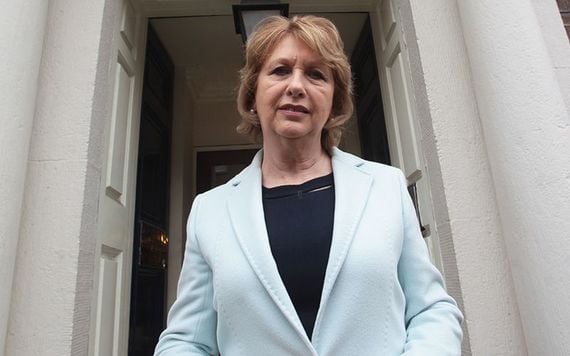
Former president of Ireland Mary McAleese.
Allen
This last name is usually of Scottish or English origin but sometimes in Offaly and Tipperary Ó hAillín has been anglicized Allen as well as Hallion. Allen is found as a synonym of Hallinan. As Alleyn, it occurs frequently in medieval Anglo-Irish records. The English name Allen is derived from that of a Welsh saint.
Barrett
The surname Barrett came to Ireland with the Anglo-Norman invaders at the end of the twelfth century. To this day, the surname is most frequently found in Co. Cork.
Barry - de Barra
The majority of these Irish last names are of Norman origin, i.e. de Barr (a place in Wales); they became completely Hibernicized. Though still more numerous in Munster than elsewhere, the name is widespread throughout Ireland. Barry is also the anglicized form of Ó Báire and Ó Beargha (meaning "spear-like", according to Woulfe), a small sept of Co. Limerick.
O'Beirne
Although the pronunciation of this name is very similar to O'Byrne, there is no connection between the septs. O'Beirne has its origins almost exclusively in Connacht.
Bodkin
This non-Irish sounding name is intimately connected with Galway, with the Bodkins being one of the fourteen “tribes” of the city. The name was originally spelled Boudakyn, then Bodekin, before eventually finalizing at Bodkin.
O'Boland
The old form of this name, Bolan or O'Bolan, is almost obsolete, though occasionally found in Ireland. There are two distinct septs of the name, both of which have origins in County Sligo.
O'Boylan
The O'Boylan sept of Oriel, which sprang originally from the same stock as the O'Flanagans of Fermanagh, was, in medieval times, located in a widespread territory stretching from Fermanagh to Louth.
O'Boyle
Boyle is Ó Baoighill in modern Irish, the derivation of which is possibly from the Old Irish word "baigell", i.e. "having profitable pledges". Modern scholars reject the derivation "baoith-geall". It is thus, of course, a true Irish surname.
(Mac)Brady
In Irish, the name is Mac Brádaigh, so it should correctly be MacBrady in the anglicized form. The prefix 'Mac', however, is seldom used in Irish last names in modern times; the modern use of the prefix 'O' instead of 'Mac' with this name is erroneous. The MacBradys were once a powerful sept belonging to Breffny.
O'Brallaghan
Few Irish surnames have been more barbarously maltreated by the introduction of the English language into Ireland than Ó Brollachain. For some extraordinary reason, it was generally given as its anglicized form, the common English name Bradley. Though in a few places, notably County Derry, it is quite rationally still O' Brallaghan.
O'Breen, MacBreen
Presently the Breens are widely distributed around Ireland. They are usually called simply Breen, though originally there were both MacBreens and O'Breens. The Mac Braoins (Irish form of the name) were an Ossory sept seated near Knock-topher in County Kilkenny; after the Anglo-Norman invasion they were dispersed by the Walshes and sank in importance.
Brennan - Ó Braonáin
The word "braon" has several meanings, possibly "sorrow" in this case. The name of four unrelated septs, located in Ossory (or Osraige, present-day County Kilkenny and western County Laois), east Galway, Kerry, and Westmeath. The name of the County Fermanagh sept of Ó Branáin was also anglicized to Brennan, as well as Brannan.
O'Brien
The Old Irish name used by the O’Brien family in Ireland was O Briain, which means "descendant of Brian". The name's origins are first found in Thomond, a territory comprised mostly of Co. Clare with adjacent parts of Limerick and Tipperary. Before the 10th Century, the sept was a Dalcassian Clan known as the Ui Toirdealbhaigh, which achieved prominence with the rise of their ancestor Brian Boru, the High King of Ireland.
MacBride, Kilbride
MacBride is Mac Giolla Brighde in Irish, i.e. son of the follower or devotee of St. Brigid. The name is found most frequently in Ulster, particularly in Co. Donegal and Co. Down.
O'Broder, Broderick, Brothers
Broderick is a fairly common indigenous surname in England. However, very few Irish Brodericks are of English extraction, with the surname also deriving from the Gaelic "O' Bruadair". Broderick offers a good example of how names evolved and were Anglicized over the course of two centuries of English domination in Ireland.
Butler
Anglo-Norman name later Earl of Ormond. Lord FitzWalter, later Butler, accompanied British forces to Ireland in 1169 to secure Anglo-Norman lands. The family received Irish titles for their service. Later connected to Ormond line in the Kilkenny, Tipperary area.
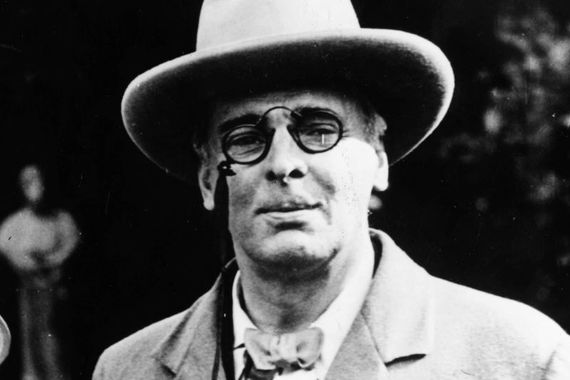
William Butler Yeats.
O'Byrne
This name in Irish is Ó Broin, i.e. the name's meaning is "descendant of Bran" (an earlier form of Broen), King of Leinster, who died in 1052. With the O'Tooles, the O'Byrnes were driven from their original territory in modern Co. Kildare at the time of the Anglo-Norman invasion, and settled in the wilder country of South Wicklow in roughly 1200.

Love Irish history? Share your favorite stories with other history buffs in the IrishCentral History Facebook group.
MacCabe - Mac Cába
An anglicized form of the Irish Mac Cába, which comes from "cába", meaning "cape" or "hat". In the Middle Ages, the Irish O'Reilly and O'Rourke families of Leitrim and Cavan brought fighters from Scotland to build their forces. Many of these gallowglass men (from Irish: "gall óglaigh" means foreign warriors) were MacCabes from Inis Gall in the Hebrides (west coast of mainland Scotland). They are believed to have worn distinctive hats. In regards to their origin, it is more likely to be from a non-Gaelic personal name.
(Mac)Caffrey
The MacCaffreys are a branch of the MacGuires of Fermanagh. The townland of Ballymacaffrey near Fivemiletown on the Tyrone border marks their homeland. The great majority of people with this name today belong to families in Fermanagh and Tyrone.
O'Cahill
In early medieval times the most important sept of O'Cahill was that located in County Galway near the Clare border. The head of which was Chief of Kinelea, but by the middle of the thirteenth century, their former position as the leading family in Kilmacduagh had been taken by the O'Shaughnessys.
Callaghan - Ó Ceallacháin
The eponymous ancestor, in this case, was Ceallacháin, King of Munster (d. 952). The sept was important in the present Co. Cork until the seventeenth century and the name is still very numerous there. The chief family was transplanted under the Cromwellian regime to east Clare, where the village of O'Callaghan's Mills is called after them.
MacCann, Canny
The Irish Mac Anna (son of Annadh), by the attraction of the 'C' of Mac, has become Mac Canna in Irish and MacCann (also Canny and Canney) in English. The MacCanns occupied a district of Co. Armagh which was originally run by the O'Graveys.
O'Cannon
Cannon is a common English surname derived from the ecclesiastical word "canon". It is also the anglicized form of the name of two quite distinct Irish septs, one stemming from Galway and the other from Donegal. The original Gaelic form of the name is Ó Canain, from the word "cano", which means "wolf cub".
Carey
Carey is the anglicized form of O'Keary (Irish: Ó Ciardha). O'Kearys belonged to the southern Ui Niell and were lords of Carbury (Co. Kildare) until dispersed by the invasion of the Anglo-Normans.
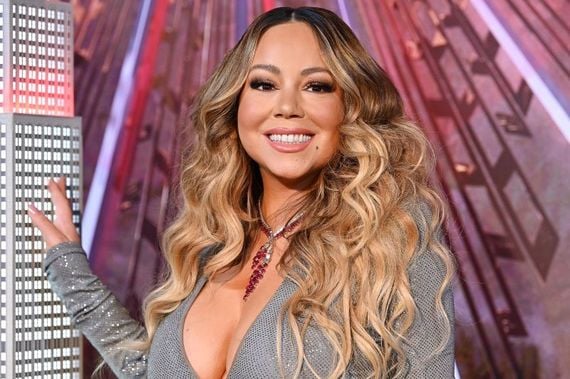
Mariah Carey
O'Carolan
The Irish surname O'Carolan claims descent from the O'Connors, Kings of Connaught, in Donegal, where Carlan (from the Irish "carla" and "an", meaning "one who combs wool"). The name O'Caloran was first found in Co. Limerick.
Carroll
The name Carroll was first found in counties Tipperary, Offaly, Monaghan and Louth. It has undergone many variations since its genesis. In Irish, this surname appeared as Cearbhaill, derived from the name of Cearbhal, the lord of Ely who helped Brian Boru lead the Irish to victory in the Battle of Clontarf.
MacCartan (Carton)
The Irish surname MacArtain became, in English, MacCartan, or sometimes Carton. This is an example of the error often found with Mac names beginning with a vowel, where the letter 'c' of Mac was carried forward to form the start of the name proper (i.e. – MacCann, MacCoy etc.). The name is derived from the common Christian name Art, of which Artan is a diminutive.
MacCarthy
No Irish Mac name comes near MacCarthy in numerical strength. The abbreviated form Carthy is also very common, but MacCarthy is a name which has generally retained the prefix. It is among the dozen most common names in Ireland as a whole, due to the very large number of MacCarthys from Co. Cork, which accounts for some 60% of them. From the earliest times, the name has been associated with South Munster or Desmond.
O'Casey (MacCasey)
There were originally at least 6 six distinct and unrelated septs of Ó Cathasaigh, the most important of these in early times were found in Co. Dublin. However, O'Caseys were also found in Fermanagh, Limerick, Cork, and Roscommon. In its ancient Gaelic form, the name is Ó Cathasaigh, from the word "cathasach" which means "watchful".
(Mac)Clancy
Clancy is a typical Mac name: the initial 'c' of Clancy, is, in fact, the last letter of the prefix Mac, so it would have been MacLancy. Clancy also happens to be an alternative form of the name "Glanchy", which was common in the seventieth century and can still be occasionally found.

The Clancy Brothers and Tommy Makem.
O'Coffey
This name is Ó Cobhthaigh in Irish, pronounced O'Coffey in English: it is likely derived from the word "cobhthach", meaning "victorious". Coffey is one of those surnames that has not often retained the 'O' prefix. Coffey has several distinct septs that date back to the medieval times, two of which are still well represented in their original homeland. These are the Coffeys in Co. Cork and Co. Roscommon.
(Mac)Coghlan, O'Coughlan
There are two quite distinct septs of Coughlan, one being MacCoughlan of Offaly and the other - O'Coughlan of Co. Cork. In Irish, it has appeared as Mac Cochlain or Ó Cochlain.
O'Connor
Associated with the areas of Derry, Connacht, and Munster. An anglicized form of Gaelic Ó Conchobhair. Many claim descent from a 10th-century king of Connacht of this name. In Irish legend, Conchobhar was a king of Ulster who lived at around the time of Christ and who adopted the youthful Cú Chulainn. "Conchobhar" also means "lover of canines".
MacColgan
In early medieval times, Colgan had the prefixes 'O' and 'Mac'. There are two distinct septs of this name – one originating in Co. Derry and the other stem from Offaly. Those in Derry claim descent from the O'Connors.
Collins, Colin
In Ireland, the meaning of this last name is often the anglicized form of Coileain, prefixed by 'Mac' or 'O', and found mainly in the western part of the country. In this case, the name translates as "the young hound". Also derived from the Greco-Roman name Nicholas.
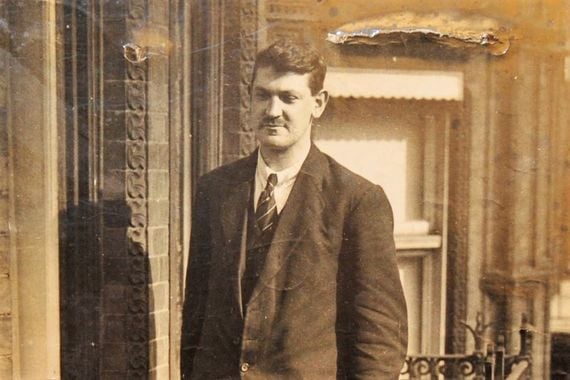
Michael Collins.
O'Colman
Though families called Coleman are known to have settled in Ireland in as early as the thirteenth century, having come from England, where the name is common, Coleman in Ireland almost always denotes a Gaelic origin. The main sept of Coleman, Ó Colmáin, originated in Co. Sligo.
O'Concannon
The name Concannon is rarely found outside the territory of its origin, which is Galway. All 21 recorded births registered for this name in the last available statistical return took place in Co. Galway or in contiguous areas of adjacent counties.
Condon
The northeastern division of Co. Cork, close to the adjoining counties of Limerick and Tipperary, is called the barony of Condons. It was named after the family of Condon that was in control of most of the area, with their principal stronghold being the Castle of Clogleagh near Kilworth. They may indeed be described as a sept rather than a family.
MacCormack - Cormick, Mac Cormaic
Formed from the forename Cormac. This name is numerous throughout all the provinces, the spelling MacCormick being more common in Ulster. For the most part, it originated as a simple patronymic; the only recognized sept of the name is from the Fermanagh-Longford area. Many of the MacCormac(k) families of Ulster are of Scottish origin, being a branch of the clan Buchanan-MacCormick of MacLaine.
Dalton
Though this name is not Irish in origin, it is on record in Dublin and Meath as early as the beginning of the thirteenth century, the family having been established in Ireland following the Anglo-Norman invasion. Its Norman origin is more apparent in the alternative spelling, still sometimes used – D'Alton, "of Alton", a place in England.
O'Daly
O'Daly is said to be the greatest name in Gaelic literature. Other septs may have produced one or two more famous individuals, but the O'Dalys have a continuous record of literary achievement from the twelfth to the seventeenth century and, indeed, even to the nineteenth. There have been no less than thirty O'Dalys distinguished as writers between 1139 and 1680.
Darcy, O'Dorcey, MacDarcy
Often spelled as D'Arcy, which is historically correct in the case of the families who descend from Sir John D'Arcy, Chief Justice of Ireland in the fourteenth century. There are also the Darcys of Hyde Park, Co. Westmeath, and it is reasonable to assume that the D'Arcys of the east midlands of Ireland are of that stock.
O'Dargan, Dorgan
The Irish last name Ó Deargáin, the root of which is "dearg" ("red"), has taken the anglicized form Dargan in Leinster and Dorgan in Munster. The latter is almost confined to Co. Cork (Ballydorgan) while respectable families of Durgan have long been living in the midland counties. As a Gaelic sept they were of little importance so they seldom appear in the Annals, the "Book of Rights", the Fiants, the "Topographical Poems", "An Leabhar Muimhneach", or any of the usual sources of genealogical information.
O'Davoren
Formerly a flourishing Thomond sept, the O'Davorens have dwindled to small numbers but are still found in Clare and the adjoining county of Tipperary. They are described as the formerly learned Breton family seated at Lisdoonvarna, where they had a literary and legal school, among the pupils of which was Dald MacFirbis, the most distinguished of the celebrated family of Irish antiquaries.
O'Dea
O'Dea is a name associated, in the past and present alike. almost exclusively with County Clare and areas like Limerick City and North Tipperary, which immediately adjoin it. It is not a common name elsewhere – even in County Clare, it appears infrequently outside the part of the county where it originated.
O'Delany, Delaney
Delany is a surname rarely seen today with the prefix 'O', to which it belongs. It is Ó Dubhshláinte in Irish, Delany being a phonetic rendering of this – the 'A' of Delany was formerly pronounced broad. An earlier anglicized form was O'Delany, as in Felix O'Delany, Bishop of Ossory from 1178 to 1202, who built St. Canice's Cathedral in Kilkenny.
O'Dempsey, Dempsey
The O'Dempseys are of the same stock as the O'Connors of Offaly and were a powerful sept in the territory on the borders of Leix and Offaly known as Clanmalier, which lays on both sides of the River Barrow. They were Clanmalier's traditional chiefs. The name O'Dempsey originally appeared in Gaelic as Ó Diomasaigh, from the word 'diomasach', meaning 'proud'.

Patrick Dempsey.
McDermott
The McDermots are one of the few septs whose head is recognized by the Irish Genealogical Office as an authentic chieftain, that is to say he is entitled in popular parlance to be called The McDermott; and in this case this is enhanced by the further title of Prince of Coolavin, though, of course titles are not recognized under the Irish Constitution - the designation is only used by courtesy.
O'Devine, Davin, Devane
The name Devine is chiefly found today in the counties of Tyrone and Fermanagh. Up to the fifteenth century, the chief of this sept was Lord of Tirkennedy in Co. Fermanagh. Though the etymology of the name has been questioned, we may accept the view of so eminent a scholar as O'Donovan that it is in Irish Ó Daimhín. The root of this name is believed to be "damh", which according to Dineen, means an "ox" or a "stag".
O'Devlin
There was once a not so unimportant sept of Ó Doibhilin, Anglice O'Devlin, in what is now the barony of Corran, Co. Sligo. As late as 1316 one of these, Gillananaev O'Devlin, who was standard bearer to O'Connor, was slain in battle. Their descendants have either died out or have been dispersed. The principal sept of the name belongs to Co. Tyrone.
Dillon
Although not a native Irish last name in origin, the surname Dillon may now be regarded as hundred percent Irish: when met outside Ireland it will most always be found belonging to a person of Irish origin. The Dillons came to Ireland at the time of the Anglo-Norman invasion. Dillon has been an important name in Irish history and modern politics.
O'Dineen, Dinan, Downing
Today, the great majority of Dineens, who rarely, if ever, have the prefix 'O' in English, belong to Co. Cork families, especially to the southwestern part once known as Corca Laoidhe. It was there that the sept originated.
Disney
Derived from a French place-name, Isigny-sur-Mer, and originally written D'Isigny, "from Isigny", the name Disney occurs quite frequently in the records of several Irish counties in the south and midlands since the first half of the seventeenth century.
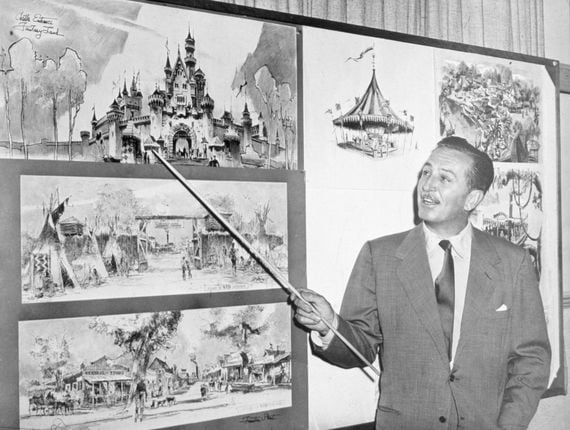
Walt Disney.
O'Doherty
Doherty is an example of a surname in which the resumption of its prefix 'O' during the recent century has been very marked. Comparing the statistics of 1890 with 1955, we find that in the former year in Ireland out of 465 births registered, fewer than two percent were O'Doherty. Alternative spellings such as Dogherty and Dougherty are rarely met with nowadays as well.
O'Dolan, Doolan
The name Dolan is fairly common today in Ulster, in the Catholic areas of Counties Cavan and Fermanagh, and in the Counties of Roscommon and Galway in Connacht. The latter is the place of origin of this sept which is a branch of the Ui Máine (Hy Many). In the census of 1659, the name appears principally in Counties Roscommon and Fermanagh (the portion dealing with Co. Galway is missing).
MacDonlevy, Dunleavy, Leavy
Dunleavy, to give its most usual modern form, may be regarded as a 'Mac' surname (Mac Duinnshléibhe in Irish), though, in some early manuscripts, e.g. the "Topographical Poems" of O'Dugan and O'Heerin, the prefix 'O' is used. In the "Annals of Loch Cé" the 'O' prefix appears in the sixteenth century, but all of those mentioned before that are 'Mac'.
McDonnell
Today the McDonnells are found widely distributed all over Ireland, and without, including the cognate McDonald in the count, the McDonnells in Ireland amount to nearly 10,000 persons with three separate, distinct origins. The Dalriadan clans of ancient Scotland spawned the ancestors of the McDonnell family.
O'Donnell
The O'Donnells have always been numerous and eminent in Irish life. They are of course chiefly associated with Tirconnaill (Donegal), the home of the largest and best known O'Donnell sept. But as the present distribution of persons of the name implies, there were quite distinct O'Donnell septs in other parts of the country, two of which require special mention: Corcabaskin in West Clare, and another, a branch of the Uí Maine (Hy Many, in Co. Galway).
O'Donnellan, Donlon
the O'Donnellans were a sept of the Uí Maine. They belong, therefore, by origin, to the southeastern part of Co. Galway where the place name Ballydonnellan perpetuates their connection with the district between Ballinasloe and Loughrea. They claim descent from Domhallán, lord of Clan Breasail.
O'Donnelly
According to statistics, there are just short of 10,000 persons of the name Donnelly in Ireland today, which places this name among the sixty-five most popular in the country. Practically all of these may be regarded as belonging to the Ulster Donnelly sept – Ó Donnghaile of Cinel Eoghan.
MacDonogh
Like so many well-known Irish surnames, the MacDonoghs are formed from a common Christian or personal name: MacDonagh (Irish: Mac Donnchadha, i.e. "son of Donnchadh", or "Donagh"). MacDonagh is one that came to usage in two widely separated parts of the country.
O'Donoghue, Donohoe, Dunphy
Donoghue or Donohoe, more properly O'Donoghue, is one of the most important Irish surnames as well as the most common names in Ireland. In Irish, Ó Donnchadha's meaning is "descendant of Donnchadh", Anglice Donogh, a personal name. Several distinct septs of the name existed in early times.The original Gaelic form of the name Dunphy is Ó Donnchaidh as well.
O'Donovan
There are few families about which we have more information than the O'Donovans. The Genealogical Office has a verified pedigree of the eldest branch from Gaelic times, when they held a semi-royal position, up to the present day, and also the notes of Dr. John O'Donovan, one of Ireland's most distinguished antiquarians and a member of a junior branch of the same sept. All of these are available to the general public.
O'Dooley
The modern form of this name in Irish is Ó Dubhlaoich. The Four Masters write it Ó Dughlaich when describing their chiefs in the eleventh and twelfth centuries as Lords of Fertullagh, the southeastern end of Co. Westmeath. They were driven thence by the O'Melaghlins and the Tyrrells and migrated to the Ely O'Carroll of Éile, a medieval petty kingdom in northern Munster, where they acquired a footing on the western slopes of Slieve Bloom.
O'Doral, Dorrian
The O'Dorians have been justly described as "the great Breton family of Leinster", but they are probably better known as traditional antiquarians who kept in their possession from generation to generation the three manuscript copies of the "Tripartite Life of St. Patrick".
O'Dowd, Dowda, Doody, Duddy
This is one of the 'O' names with which the prefix has been widely retained, O'Dowd being more usual than Dowd. Other modern variants are O'Dowdy and Dowds, with Doody, another synonym, found around Killarney. O'Dowd, which comes from Ó Dubhda, which means "black" or "dark complexioned", was first found in county Mayo.
O'Dowling
The Dowlings are one of the "Seven Septs of Leix", the leading members of which were transplanted to Tarbert on the border of north Kerry and west Limerick in 1609. This transplantation did not affect the rank and file of the sept, who multiplied in their original territory.
O'Downey, MachEldowney, Doheny, Muldowney
The O'Downeys were of some importance in early medieval times, when there were two distinct septs of Ó Dúnadhaigh. That of Síol Anmchadha (present day County Galway), of the same stock as the O'Maddens, several of whom are described in the "Annals of Innisfallen" and "Four Masters" as lords of Síol Anmchadha, who became submerged as early as the twelfth century. Their descendants are still found in quite considerable numbers in that county.
Doyle, MacDowell
Doyle, rarely found as O'Doyle in modern times, stands high on the list of Irish surnames arranged in order of numerical strength, holding the twelfth place with approximately 21,000 people out of a population of something less than 4 million. Though now widely distributed, it was once most closely associated with the counties of southeast Leinster (Wicklow, Wexford, and Carlow) in which it is chiefly found today, and in the records of the fifteenth, sixteenth and seventeenth centuries.
O'Driscoll
Few families have been so continuously and exclusively associated with the territory of their origin as the Driscolls or O'Driscolls. They belong to Co. Cork. At first, they were concentrated in south Kerry, but pressure from the O'Sullivans drove them eastwards and they then settled near Baltimore in southwest Cork.
O'Duff, Duhig, Dowey
The name Duffy or O'Duffy is widespread in Ireland: it is among the fifty most common surnames, standing first on the list for Co. Monaghan. it is also very common in north Connacht. It is found in Munster to some extent, but there it often takes the form Duhig, while in parts of Donegal it has become Doohey and Dowey.
O'Duggan, O'Dugan
Dugan, in Irish Ó Dubhagain, is in some places given in English speech the Irish pronunciation of Doogan. The prefix 'O', dropped in the seventeenth century, has not been continued. Outside of Dublin, the name is almost entirely confined to Munster, especially Counties Cork and Tipperary, and Wexford. In the seventeenth century, it was very common in Co. Tipperary.
O'Dunn, Dunn
In Irish Ó Duinn or Ó Doinn – "doin" is the genitive case of the adjective "donn", meaning "brown". It is more often written Dunne than Dunn in English. The form O'Doyne, common in the seventeenth century, is now almost obsolete.
O'Dwyer
The O'Dwyers (in Irish: Ó Duibhir, meaning "a descendant of Duibhir") were an important sept in Co. Tipperary, though incomparable in power or extent of territory to the neighboring great septs. Their lands were Kilnamanagh, the mountainous area lying between the town of Thurles and the county of Limerick.
Egan, Keegan
In Irish Egan is MacAodhagáin (from the Christian name Aodh, Anglice Hugh), and the surname is really MacEgan, though the prefix 'Mac' is rarely used in modern times except by the family who claims to be head of the sept.
McElroy, (Mac)Gilroy, Kilroy
These Irish surnames are Mac Giolla Rua in Irish, i.e. "son of the red (haired) youth". The sept originated in Co. Fermanagh where the place-name Ballymackilroy was found: their territory was on the east side of Lough Erne.
MacEnchroe, Crowe
The very English-seeming name Crowe disguised the genuinely Irish surname MacEnchroe, which in its original form is Mac Conchradha. The form MacEnchroe is still in use but all of the members of this sept who live in its original territory, Thomond (present-day County Clare and County Limerick), are now called simply Crowe.
McEvoy, MacElwee, MacGilloway, MacVeagh
The MacEvoys were one of the "Seven Septs of Leix", the leading members of which were transplanted to Co. Kerry in 1609. The lesser clansmen remained in their own territory and Leix (now County Laois) is one of the areas in which the name is found fairly frequently today.
Fagan
In spite of its very Irish appearance ('-gan' is one of the most common terminations of Irish surnames), Fagan must be regarded as a family name of Norman origin. At the same time, it must be pointed out that it is not an English name. It is derived from the Latin word "Paguns". For many centuries it has been associated with Counties Dublin and Meath.
O'Fahy
Fahy (also spelled Fahey) is almost exclusively a Co. Galway name, though of course it is also found in the bordering areas, such as north Tipperary, and in Dublin. A sept of the Ui Máine, the center of their patrimony, which they held as proprietors up to the time of the Cromwellian upheaval (and where most of them still dwell) is Loughrea. Their territory was known as Pobal Muintir Uí Fathaigh, "the country inhabited by the Fahys" (in what is now the parishes of Kiltomas and Peterswell in the Slieve Aughty).

Love Irish history? Share your favorite stories with other history buffs in the IrishCentral History Facebook group.
O'Fallon, Falloone
The last name Fallon or, as it is also written O'Fallon, has been closely associated with the counties of Galway and Roscommon. It originated as a last name due to a family seat in Galway in very ancient times. The Gaelic form is Ó Fallamhain.
O'Farrell, O'Ferrell
Farrell, with and without the prefix 'O', is a well-known name in many parts of the country and it stands thirty-fifth in the statistical returns showing the hundred most common names in Ireland. It is estimated that there are over 13,000 people with the name in Ireland; the great majority of these were born in Leinster, mainly in Co. Longford and the surrounding areas.
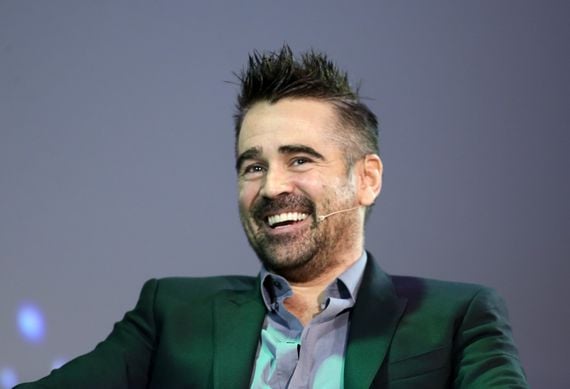
Colin Farrell
O'Farrelly, Farley
O'Farrelly – Ó Faircheallaigh in Irish – is the name of a Breffny sept associated in both early and modern times principally with Counties Cavan and Meath. The Gaelic poet Feardorcha O'Farrelly (d. 1746) was born in Co. Cavan.
O'Feeny
Apart from the quite definite fact that it is, essentially, a Connacht name, it is difficult to be precise in dealing with the surname Feeney. The reason for this is that in Connacht there are two different septs – Ó Fiannaidhe in Sligo and Mayo and Ó Fidhne in Galway and Roscommon.
O'Finn, Magian
The name Finn – it seldom has the prefix 'O' in modern times – is chiefly found in Co. Cork today and this was equally true in the seventeenth century, as Petty's census shows. This is curious because it is usually a fact that names are still most numerous in the part of Ireland in which they originated.
O'Finnegan
There are two distinct septs of Finnegan or Finegan, whose name is Ó Fionnagáin in Irish, which means "the descendants of Fionnagán", an old Irish personal name derived from the word "fionn", i.e. meaning "fairheaded". One of these septs was located on the border of Galway and Roscommon, where there are two places called Ballyfinnegan – one in the barony of Ballymore and the second in the barony of Castlereagh.
Fitzgerald
The Fitzgeralds of Ireland, who are now very numerous, are said to all have descended from the famous Maurice, son of Gerald, who accompanied Strongbow in the Anglo-Norman invasion. Gerald was constable of Pembroke in Wales and was married to Nesta, Princess of Wales.
Fitzgibbon, Gibbons
In treating of the surname Gibbons in Ireland it must first be mentioned that this is a very common indigenous name in England and in the course of the several plantations of English settlers in this country from 1600 onwards, as well as a result of business infiltration, it is inevitable that at least a small proportion of our Gibbonses must be of English stock.
Fitzpatrick, Kilpatrick
This is the only surname with the prefix 'Fitz', which is of native Irish origin, the others being Norman. The Fitzpatricks are Macgilpatricks – Mac Giolla Phádraig in Irish, meaning "son of the servant or devotee of St. Patrick". First found in Kilkenny (which was then called Ossory).
O'Flaherty, Laverty
The O'Flahertys possessed the territory on the east side of Lough Corrib until the thirteenth century when, under pressure from the Anglo-Norman invasion into Connacht, they moved westwards to the other side of the lake and became established there. The head of the sept was known as Lord of Moycullen and as Lord of Iar-Connacht, which, at its largest, extended from Killary Harbour to the Bay of Galway and included the Aran Islands.
O'Flanagan
This surname is practically the same in both its Irish and anglicized forms, being in the former Ó Flannagáin, which is probably derived from the adjective "flann" meaning "reddish" or "ruddy". It belongs to Connacht both by origin and location (i.e. present distribution of population).
O'Flannery
The name O'Flannery – or rather Flannery for the prefix 'O' has been almost entirely discarded – is identified with two different areas. One sept of Ó Flannabrah was of the Uí Fiachrach, located at Killala, Co. Mayo; the other of the Uí Fidhgheinte was one of the main families of the barony of Connelloe, Co. Limerick.
Fleming
Fleming, as the word implies, denotes an inhabitant of Flanders, and this surname originated about the year 1200 when many Flemings emigrated to Britain, settling chiefly on the Scottish border and in Wales. Since then it has mostly been associated with Scotland. Nevertheless, it is fairly common in Ireland.
O'Flynn, O'Lynn
The surname O'Flynn is derived from the Gaelic personal name Flann; the adjective "flann" denotes a dull red color and means "ruddy" when applied to persons. Ó Floinn is the form of the surname in Irish.
O'Fogarty
The sept O'Fogarty was of sufficient importance to give its name to a large territory – Eliogarty, i.e. the southern part of Éile or Ely, the northern being Ely O'Carroll. Eloigarty is now the name of the barony of Co. Tipperary in which the town of Thurles is situated.
O'Foley, MacSharry
Foley is an old Irish surname about which some confusion has arisen because there is an important family of Worcestershire called Foley, which is usually regarded as English, though some think it was originally Irish. For example, it is the arms of this English family which is often ascribed to Gaelic Foleys.
Forde
It is impossible for any Irishman called Forde or Ford to know the origin of his people unless there can be a firm family tradition to aid him, or alternatively he knows that they have long been located in a certain part of the country. The reason for this is that at least three Irish septs with entirely different surnames in Irish became known in English as Forde or Ford.
Fox
In this note, we may disregard English settlers of the name Fox, one family of whom became extensive landowners in Co. Limerick and are perpetuated there in the place name Mountfox, near Kilmallock.
French, de Freyne
Originally Norman, the name was de Freeness, from Latin "fracinus" – an "ash tree". When the Anglo-Normans began to settle in Ireland, they brought the tradition of local surnames to an island which already had a Gaelic naming system of hereditary surnames established. The Anglo-Normans had an affinity for local surnames (like French) which were formed from the names of the place where the person lived or was born.
O'Friel
O'Friel is a Donegal name. In Irish it is Ó Firghil (from "Feargal"); it is pronounced and often written "Ó Fright", i.e. O'Freel in English phonetics. This sept has a distinguished origin, descended from Eoghan, brother of St. Columcille.
Gaffney (Caulfield, O’Growney, Keveney, MacCarron, Carew)
Gaffney is one of those quite common Irish surnames about which much confusion arises. Not only is it used as the anglicized form of four distinct Gaelic names, but Gaffney itself has for some obscure reason become Caulfield in many places. It never appears today with either 'Mac' or 'O' as prefix: of the four patronymics referred to above two are 'O' names and two are 'Mac'.
O'Gallagher
The name of this sept, Ó Gallchobhair in Irish, signifies descendant of Gallchobhar or Gallagher, who was himself descended from the King of Ireland who reigned from 642-654. The O'Gallaghers claim to be the senior and most loyal family of the Cineal Conaill. Their territory extended over a wide area in the modern baronies of Raphoe and Tirhugh, Co. Donegal, and their chiefs were notable as marshals of O’Donnell’s military forces from the fourteenth to sixteenth centuries.
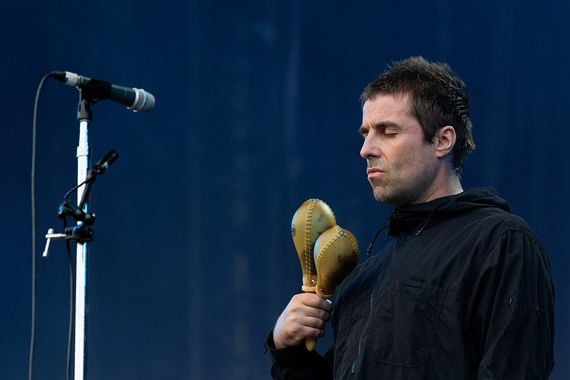
Liam Gallagher.
O'Galvin
The O'Galvins are a sept of Thomond and are mentioned among the Co. Clare septs which took part in the Battle of Lough Raska, otherwise called the Battle of Corcomroe Abbey, in 1317. They haven't appeared prominently in any branch of Irish public life since that time, but representatives of the sept have remained continuously in their original homeland and are still found in Co. Clare, and in greater numbers today, in Co. Kerry.
MacGannon
The name of the old Erris (Co. Mayo) family of Mag Fhionnáub is usually anglicized Gannon, without the 'Mac': in the spoken language in Irish it is often called Ó Geanáin but the equivalent O'Gannon is not used in English. Gannons are still more numerous in their original homeland in Co. Mayo than elsewhere.
O'Gara, Geary
The sept of O'Gara, Ó Gadhra in Irish, is closely associated with that of O'Hara. They have a common descendant down to the tenth century - Gadhra, the eponymous ancestor of the O'Garas, being the nephew of Eadhra (from which the O'Haras descended). From then on they established separate chieftaincies, O'Gara taking the territory to the south of the barony now known as Leyney, Co. Sligo, with the O'Haras being to the north of them.
MacGarry, Garrihy, O'Hehir, Hare
MacGarry is one of those names, which in the anglicized form takes its initial letter from the end of the prefix – in this case, 'Mag' (a variant of 'Mac' often used with the names beginning with a vowel or 'fh'). In Irish, MacGarry is Mag Fhearadhaigh.
O'Garvey, MacGarvey, Garvin
Garvey is one of those surnames, which in Irish have both the Gaelic prefixes, 'Mac' and 'O'. Mac Gairbhith belongs to Co. Donegal where it is common: it is Mac Garvey in English, the prefix being retained. The 'O', on the other hand, has been almost entirely discarded.
MacGee
MacGee is an Ulster name which is more usually written Magee (cf. MacGuire, Maguire, MacGuinness, Magennis, etc.). In Irish it is Mag Aodha, i.e. "son of Aodh or Hugh"; the 'Mac', as is often the case when the prefix is followed by a vowel, becoming Mag. It has been stated that our Ulster MacGees are of Scottish descent, having come to Ireland during the Plantation of Ulster in the early seventeenth century.

Love Irish history? Share your favorite stories with other history buffs in the IrishCentral History Facebook group.
MacGenis, Guinness, Magennis
The modern spelling of this name is usually MacGuinness or MacGenis but in the historical records in English, they are called as a rule Magennis, a form still to be found in some places today. In Irish, the name is MagAonghusa, which means "son of Angus". The name was first found in Co. Down in the province of Ulster – they held a family seat there from ancient times.
MacGeoghagan
Geoghegan, usually nowadays without the prefix Mac, is a name which no non-Irish person will attempt to pronounce at sight; it has many synonyms, and one of these, Gehegan, is a phonetic approximation of the longer and common form. In Irish it is Mag Eochagáin, from Eochaidh - the now almost obsolete, but once common Christian name Oghy. It will be observed that the initial 'G' of Geoghegan comes from the prefix 'Mag', a variant of 'Mac' – the anglicized form of Mageoghegan was formerly commonly used.
MacGeraghty, Gerty
Geraghty is a 'Mac' name, being Mag Oireachtaigh in Irish. 'Mac' usually becomes 'Mag' before a vowel so the initial 'G' of Geraghty is really the last letter of the prefix 'Mac' or 'Mag'. There are no less than seventeen different synonyms of Geraghty in English, including MacGerity, Gearty, and even Jerety. The Gaelic form derives from the word "oireachtach", which refers to "a member of an assembly".
MacGilfoyle, Powell
Guilfoyle is Mac Giolla Phóil in Irish, which means "son of the follower or devotee of St. Paul". It is sometimes disguised under the form Powell, an English surname adopted in its stead during the period of Gaelic depression. The prefix 'Mac', which properly belongs to it, is very seldom used here in modern times.
MacGillycuddy, Archdeacon, Cody
This name is well known to everyone who has made a visit to Killarney or even studied a map with the idea of doing so because the picturesque MacGillycuddy's Reeks are the highest mountains in Ireland and are named from the Kerry sept who dwelled at their western base.
O'Glissane, Gleeson
In spite of its English appearance in its anglicized form, the name Gleeson (never found with the prefix 'O' in English) is that of a genuine Gaelic Irish family. In modern Irish, it is Ó Gliasáin, earlier Ó Glasáin, and originally Ó Glesáin. They belong to the Aradh and their original habitat was mac Uí Bhriain Aradh's country, that is the area in Co. Tipperary between Nenagh and Lough Derg. But it should be emphasized that the Gleesons are not Dalcassians – they are of the same stock as the O'Donegans, of the barony of Ara, Co. Tipperary, who were originally from Muskerry, Co. Cork.
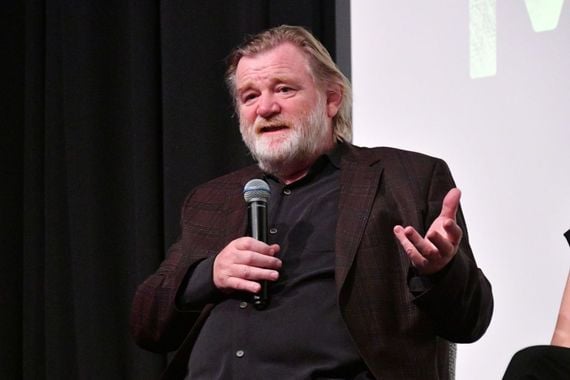
Brendan Gleeson
MacGorman, O'Gorman
This name is of particular interest philologically because, although it is (with rare exceptions) really a 'Mac' name, it is almost always found today – when not plain Gorman – as O'Gorman. This can be accounted for by the fact that in the eighteenth and early nineteenth centuries, when the native Irish were in complete subjection, the Gaelic prefixes 'Mac' and 'O' were universally allowed to fall into disuse, particularly in the case of some names like Gorman. Derived from the Irish word "gorm", which means "blue".
O'Gormley, Grehan, Grimes
Like many of the similar independent septs of northwest Ulster, the O'Gormleys sank into obscurity after the Plantation of Ulster around 1609. In the fourteenth century they were driven by the O'Donnells from their original territory, known as Cinel Moen (their tribe name), which was in the modern barony of Raphoe, Co. Donegal; but their survival in their new country on the other side of the Foyle, between Derry and Strabane, from whence they continued to fight the O'Donnells, is evidenced by the frequent mention of their chiefs in the "Annals of the Four Masters" up top the end of the sixteenth century.
MacGovern, Magauran
The MacGoverns are better known in history as Magauran. Both forms are phonetic approximations of the Irish Mag Shamhradhain, since 'MH' is pronounced as 'V' in some places and 'W' in others. The 'G' of Govern thus comes from the last letter of the prefix 'Mag', which is used before vowels and aspirates instead of the usual 'Mac'. The Gaelic form derives from the word "samhra", which means "summer".
MacGowan, O'Gowan, Smith, MacGuane
The Irish surname MacGowan (not to be confused with the Scottish MacGoun) is more often than not hidden under the synonym Smith. In Irish, it is Mac an Ghabhain, which means "son of the smith", and its translation to Smith (most common of all surnames in England) was very widespread, particularly in Co. Cavan where the MacGowan sept originated.
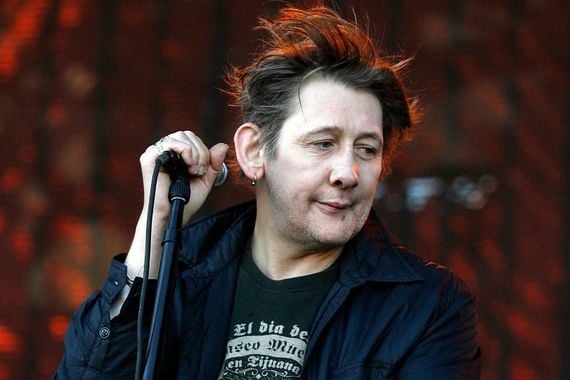
Shane MacGowan.
O'Grady
The O'Grady sept originated in Co. Clare and may be classed as Dalcassian, though the seat and territory of the Chief of the name had for several centuries been at Killballyowen, Co. Limerick, as well as Galway. The name in Irish is Ó Grádaigh or more shortly Ó Gráda, so the anglicized form approximates closely to the original. They were descendants of Olioll Olum, King of Munster.
MacGrath
Like several other names beginning with McG, Macgrath is often written Magrath (cf. MacGee, Magee, MacGennis, Magennis, etc.). In Irish, it is Mac Craith, the earlier form of which is Mac Raith or Mag Raith. Other synonyms still in use, especially in Ulster, are MacGraw, Magraw, MacGra etc. while the same Gaelic surname is found in Scotland as MacCrea, MacRae, and Rae. First found in County Clare, where they held a family seat from ancient times.
O'Griffy, Griffin, Griffith
Ó Gríobhta (pronounced O Greefa) is one of the many Gaelic surnames, which have assumed in their anglicized forms those of British families of somewhat similar sound: in this case, the earlier O'Griffy has been almost entirely superseded by Griffin. Here some confusion arises because a Welsh family of Griffin did actually settle in Ireland soon after the Anglo-Norman invasion. There is no doubt, however, that the great majority of Irish Griffins are really O'Griffys of Gaelic stock and not descendants of the Welsh settlers.
MacGuire, Maguire
These are spelling variants of Irish Mag Uidhir. Uidhir is the genitive case of "odhar" meaning "dun-colored"; 'Mag' is a form of 'Mac' used before vowels. This is one of those names definitely associated with one county. The Maguires belong to Co. Fermanagh.
Don't see your surname listed here? You may find it in the following two lists, in which we continue looking at Irish last names, their origins and meanings:
* Originally published in 2015, updated in September 2023.
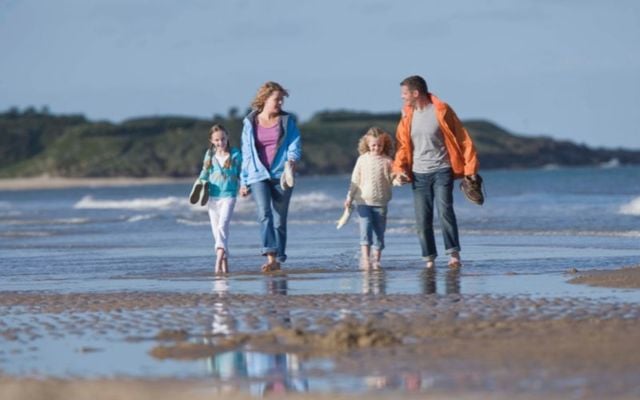



Comments